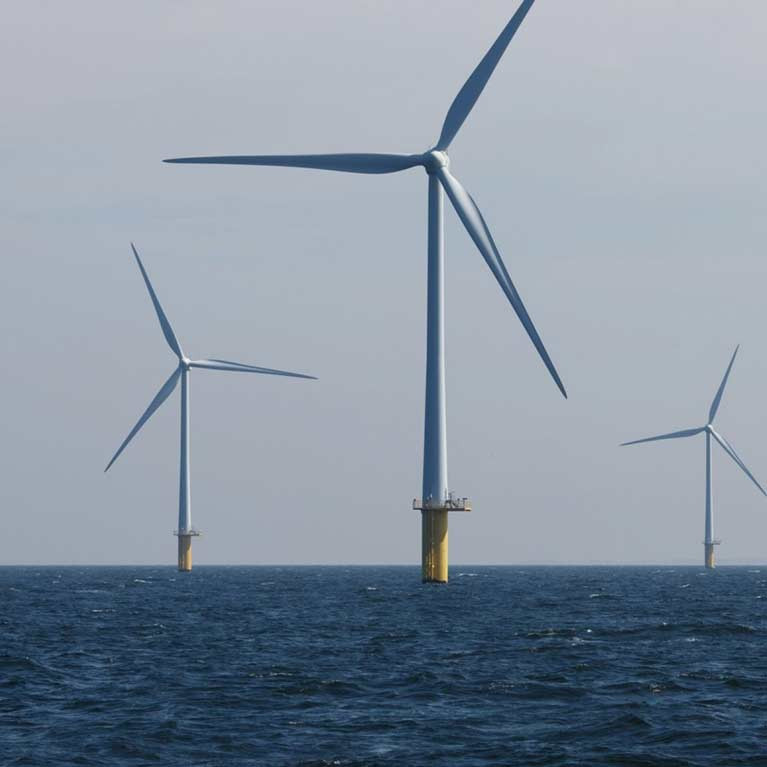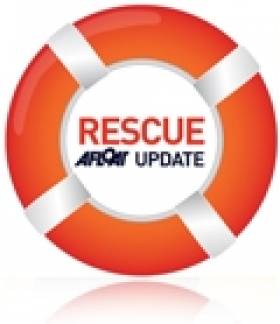Displaying items by tag: Offshore Wind Energy
Coastal communities have been given just three weeks to respond to a consultation on developing a network of offshore wind farms to meet Ireland’s climate targets.
Minister for Communications, Climate Action and Environment Richard Bruton has given a closing date of July 1st for views on how to scale up renewable energy output through offshore wind.
Under the Government’s Climate Action Plan, 70% of Ireland’s electricity will be generated from renewable energy by 2030.
At least 3,500 MW (megawatts)of this will come from offshore wind, Mr Bruton has said, which is “enough to power over three million homes”.
“It is crucial that we put in place a model that allows us to scale up and realise the changes required,” Mr Bruton said.
A consultancy report, published by Mr Bruton, outlines four options - ranging from a “developer-led” scenario, where each project would design its own connection to a more centralised “plan-led” offshore transmission development with more State involvement.
There has been some surprise within the renewables sector at the report’s release and short timeline for consultation while Government formation talks are still in train – talks which could affect the climate targets.
The selected model will be aligned with Ireland’s new National Marine Planning Framework, and the development consent regime for the maritime area as set out in the Maritime Planning and Development Management legislation, he said.
The report by Navigant consultants, based in the Netherlands, examines how other European countries approach offshore grid planning and outlines four variants of “developer-led” and “plan-led” approaches that might suit Ireland.
Under the “developer-led” model, applied in Britain, developers would prepare requirements for consents, select and pre-develop wind farm sites, plan and build farms and transmission assets.
Under the “plan-led” model, a State body would select wind farm sites and undertake pre-development and offshore grid connections – a model applied in the Netherlands, and one which would give more responsibility to Eirgrid and ESB Networks.
Under three of the four options outlined, the offshore wind transmission assets are owned and operated by the developer, who manages and bears the risk of outages to its transmission assets.
The Marine Renewables Industry Association (MRIA) chairman Peter Coyle said he welcomed the report’s publication as another example of Government commitment to renewable energy.
“This is going to set the rules for the game for the next 50 to 100 years, so the MRIA will be making a strong input to this consultation,” he said.
He noted that the Government had recently designated seven offshore renewable energy projects in the Irish Sea and outer Galway Bay “transition” projects.
Irish Wind Energy Association chief executive Dr David Connolly said that “identifying how offshore wind farms will connect to the grid is critical to ensuring we can build the 3,500 MW of projects needed to deliver the Climate Action Plan and to cut Ireland’s CO2 emissions”.
“It is essential that an effective model for the grid is partnered with a robust planning system,” he said.
“Passing the Marine Planning and Development Management Bill, which will put in place a planning system for offshore wind energy, and giving An Bord Pleanála the resources to administer it, must be top priorities for the next Government if we are to build these projects in time,” Dr Connolly added.
World Leader in Offshore Simulation Partners with National Maritime College
SEFtec NMCI Offshore Ltd (SNO), a public / private joint venture between SEFtec Global Training Ltd and The National Maritime College of Ireland (NMCI), will be launched tomorrow at the National Maritime College, Co. Cork, by the Minister of Enterprise, Trade & Employment, Batt O'Keeffe.
This venture is a shining example of how to bring together state of the art public infrastructure, in the form of one of the world's most advanced maritime colleges, with private enterprise's expertise in not only offshore training, but in the design, manufacture, installation, commissioning and service of training simulators for the global maritime industry.
The Minister for Enterprise, Trade and Innovation, Batt O'Keeffe TD, who launched the public-private joint venture, said it would support jobs and the growth of the Irish offshore exploration and wind energy sectors. 'The future is bright for the partnership we are announcing here this afternoon. The maritime sector is a diverse and developing global industry that requires huge levels of skill and technical capability,' said Minister O'Keeffe.
Focused on supporting the successful and sustainable growth of the Irish offshore exploration sector, SNO has successfully secured the approval of the Offshore Petroleum Industry Training Organization (OPITO) for its programme of courses. In a sector that is completely focused on safety,OPITO has become the global industries focal point for skills, training and workforce development.
"SNO is very proud to have achieved its OPITO approval this year, the approval came about in a phenomenal time frame and this wouldn't have been possible without the combined efforts of both public and private joint venture partners. This will mean that we can service not only the growing needs of Ireland's offshore sector, but train for the global industry as well" Conor Mowlds, Managing Director SNO Ltd.
SEFtec, an Irish SME with a global focus, commenced trading in 2004 and has quickly become one of the world's leaders in the provision of offshore simulation equipment. Based in a state-of-the-art facility in Cork it has diversified its activities from the design and fabrication of offshore training simulation equipment to training and already operates an OPITO centre in Kazakhstan.
The NMCI, a public private partnership between the Cork Institute of Technology, Vita Lend Lease and the Irish Naval Service was opened in 2004, represents a €60 million investment by the state in maritime training, and is one of the world's most advanced maritime colleges.
The future aim of SNO is to break into the offshore renewable energy sector, with the development of their Offshore Wind Energy Safety Training course (OWEST) ear marked for further development. The OWEST course currently involves Helicopter Winching Techniques, Life Saving Appliances and Vessel Abandonment which is key training for anyone working on or near Offshore Wind Energy Sites.
See below for photos taken this morning at the National Maritime College in Ringaskiddy of delegates on the OPITO approved BOSIET - Offshore Training Course, using the Helicopter Underwater Training Simulator

























































